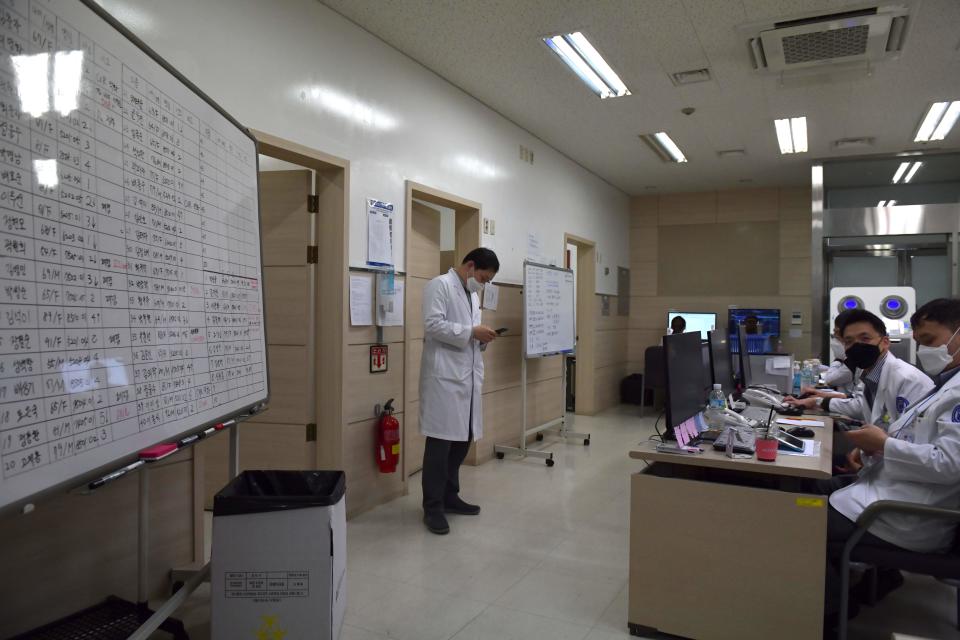South Korea becomes first country to announce second wave of coronavirus

South Korea is in the midst of a “second wave” of coronavirus infections, health officials claimed on Monday.
Until now the country had been hailed a success story for its handling of the worldwide virus pandemic. However, the Korea Centers for Disease Control (KCDC) said on Monday that a rise in new cases signalled a second wave in the capital of Seoul.
Health minister Park Neung-hoo said 90 imported cases had been identified over the past week, a sharp rise from the previous week's 48.
He said: “The government faces a grave situation as health officials need not only to contain locally transmitted infections, but also manage imported cases.”

Countries including Saudi Arabia, Israel and Iran have reported indications of a second wave in numbers of coronavirus cases, but South Korea is the first to have officially acknowledged it.
The KCDC had previously said South Korea’s first wave had never really ended.
Numbers have stayed low throughout the crisis. At the end of February the country reported a peak of more than 900 cases in a day, in the first large outbreak of the coronavirus outside of China, but an intensive tracking and testing campaign reduced the numbers to single digits by late April.

But just as the country announced it would be easing social distancing guidelines in early May, new cases spiked, driven in part by infections among young people who visited nightclubs and bars in Seoul over a national holiday weekend in early May.
On Monday, KCDC director Jeong Eun-kyeong said it had become clear that the holiday weekend marked the beginning of a new wave of infections focused on the greater Seoul area, which had previously seen few cases.
“In the metropolitan area, we believe that the first wave was from March to April as well as February to March,” Jeong said at a briefing. “Then we see that the second wave, which was triggered by the May holiday, has been going on.
“We originally predicted that the second wave would emerge in fall or winter [but] our forecast turned out to be wrong. As long as people have close contact with others, we believe that infections will continue.”
South Korea has reported a total of 12,438 cases, with 280 deaths.
Citing research by health experts, Park said the country could be possibly reporting as much as 800 new cases a day a month from now if it fails to stem current trends in transmissions.
He said the basic reproduction number of virus carriers, which measures the number of infections caused by an individual, has reached nearly 1.8 for the period between 30 April and 11 June. Any number above 1 indicates a growing epidemic.
In India last week, officials imposed a new lockdown on 15 million people after recording a huge spike in new infections.
Lockdown restriction in England continue to relax, as children return to school and bars and restaurants prepare to reopen by 4 July.
Coronavirus: what happened today
Click here to sign up to the latest news, advice and information with our daily Catch-up newsletter
Read more about COVID-19
How to get a coronavirus test if you have symptoms
How easing of lockdown rules affects you
In pictures: How UK school classrooms could look in new normal
How public transport could look after lockdown
How our public spaces will change in the future
Help and advice
Read the full list of official FAQs here
10 tips from the NHS to help deal with anxiety
What to do if you think you have symptoms
How to get help if you've been furloughed

 Yahoo Sport
Yahoo Sport 






































